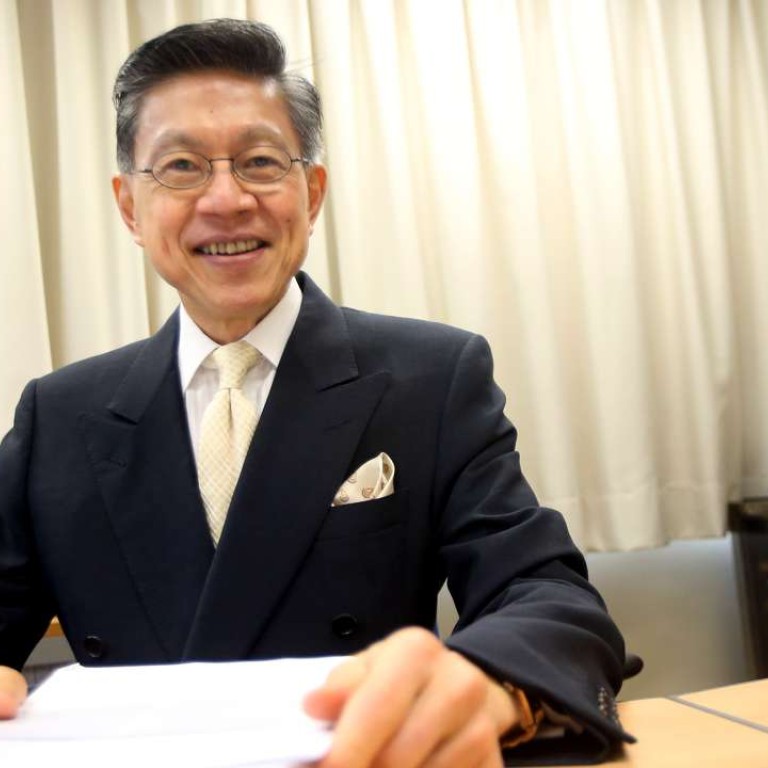
‘Free Hong Kong doctors to help dying patients end their days at home’
Former health minister calls for legal and operational barriers to be lifted so that fewer people have to spend their last days in hospital
Family doctors in Hong Kong should be empowered to serve dying patients, including certifying their death at home, former health minister Yeoh Eng-kiong told the Post.
Allowing people to die at home rather in hospital was just one option being explored by Yeoh, who has been commissioned by the government to fill gaps in health care provision for the city’s rapidly ageing population.
Enabling people to die at home or in residential care centres is currently difficult due to operational and legal barriers.
“End-of-life care is about quality of living, but not quality of dying,” Yeoh, head of Chinese University’s school of public health and primary care, said.
“I would prefer to die at home. It is a much better place ... a hospital is a foreign and congested environment.”
But under existing law, dying at home requires certification from a doctor, who must have seen that patient within two weeks before death.
“Very few doctors in Hong Kong are willing to sign the death certificates ... and doctors at public hospital would not [visit homes] to certify death,” Yeoh said.
While palliative services are provided in the primary care sector in many countries, Yeoh said, most Hongkongers choose to be admitted to hospitals in the final stage of life.
A culture of shopping around for doctors and the practice of visiting numerous doctors for one illness also prevented family doctors from following the same patient continuously.
This partly explains why most deaths occur in hospitals, with 90 per cent of the 46,000 deaths recorded in 2014 taking place in the city’s public hospitals.
In Taiwan, by contrast, more than 40 per cent of people die at home.
Yeoh called for family doctors to be given a bigger role in serving patients with terminal illnesses in face of a doubling of the elderly population – from 17 per cent of residents this year to 32 per cent by 2041.
He said he would make interim recommendations to the government in about three months.
Yeoh’s research team is carrying out an extensive survey covering 1,000 locals aged 30 or older to understand their wishes in terms of where and how they want to spend their final moments.
In Singapore, among people living in public housing, more of them prefer to die at home
Offering medical care for terminally ill patients had further stretched an already overburden public hospital system, as elderly were often admitted to hospitals three times before dying, with an average stay of 28 days.
Yeoh said elderly nursing homes with regular caregivers could take the first step in establishing a wider practice of dying outside hospitals, which he described as “the worst place to die”.
In a study in 2011, about 35 per cent of elderly Hongkongers said they preferred ending their life in a nursing home.
“The [nursing homes] should be equipped with a dying room. There should be more nursing support, especially for terminal cancer patients who suffer great pain,” Yeoh said.
He rejected the view that a home death was a privilege of the rich.
“In Singapore, among people living in public housing, more of them prefer to die at home ... the government has given them support.”
Singapore provides subsidies for families to hire foreign helpers to take care of members in need. Some cancer patients also receive painkiller kits including morphine if they prefer to die at home.
Adopting such ideas in Hong Kong would require an amendment to the Coroners Ordinance, which defines the type of deaths that must be reported and those that require autopsies.
The president of the Doctors Union, Dr Henry Yeung Chiu-fat, said the government should offer doctors better protection from liabilities that may result from patients dying at home and puts them above suspicion.
Yeung said additional training should also be provided to boost the ranks of the 6,000 family doctors in a field considered to be less attractive in terms of job prospects and income when compared with specialists.
Grace Li Fai, chairwoman of the Elderly Services Association, said there could be challenges for private care homes. “With expensive rents, how could I afford to designate an individual dying room?”

